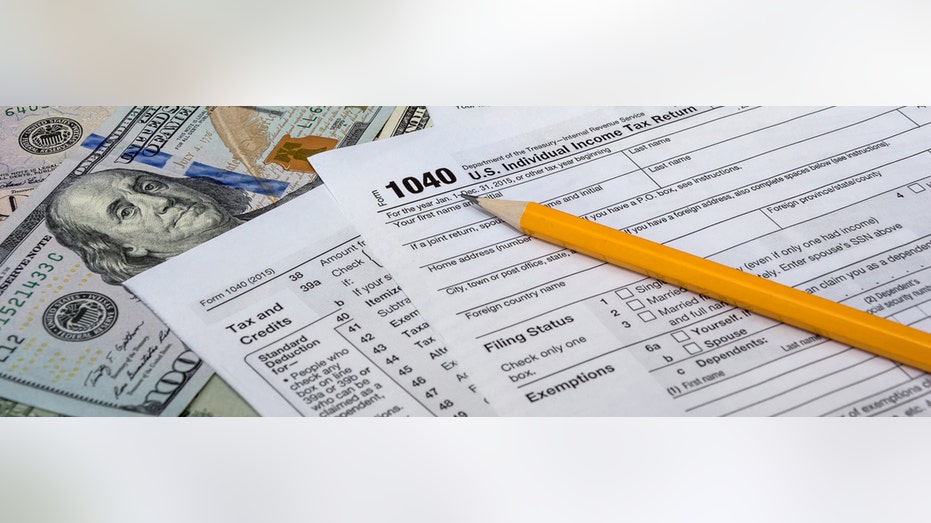Where's my tax refund? IRS sheds light on when it will send the money
Here's how to track your tax refund from the IRS
How many Americans can cover an unplanned $1k expense?
Bankrate chief financial analyst Greg McBride and CIEN CEO and co-founder Lili Gil Valletta discuss the impact of inflation on savings.
With millions of Americans expecting a tax refund this year, the IRS has one request for those looking to get their money faster: File your return electronically and as soon as possible.
Nearly three-quarters of filers received a tax refund last year, with an average payment of about $2,800, the IRS said recently – a major influx of money for most households that many Americans depend on.
IRS TAX-FILING SEASON TO KICK OFF ON JAN. 24
The IRS is already warning of a "challenging" tax season that promises to bring complications and potential delays for taxpayers. That's largely due to the deluge of unprocessed paper returns the agency is working its way through: At the end of December, the IRS had 6 million unprocessed individual returns – a significant increase from its usual backlog of about 1 million unprocessed returns around the beginning of tax season.

For taxpayers who choose to file their returns via mail, there could be as long as a four-week wait to retrieve your payment status on the site.
There are some steps that taxpayers can take in order to get their money back faster. Experts have urged taxpayers to file their tax returns as soon as possible, noting that individuals do not need previous returns in order to submit their 2021 returns. Americans are encouraged to file electronically with direct deposit in order to avoid potential delays and receive their return within 21 days.
If you file electronically – as most taxpayers do – you can start tracking the status of your tax refund within 24 hours of filing using the IRS' Where’s My Refund tool.
However, for taxpayers who choose to file their returns via mail, there could be as long as a four-week wait to retrieve your payment status on the site.
Still, many taxpayers wind up waiting far longer than 21 days for their refund – and it's often due to simple math mistakes on their tax returns or identity theft delays.
Eric Bronnenkant, head of tax at online financial adviser Betterment, said Americans should file their returns as soon as they're ready in order to help avoid tax fraud, because there's a "huge problem" where fraudsters find someone's Social Security number, illegally file a return on their behalf and claim the refund.
"The best way to mitigate someone illegally filing a return on your behalf is to file as soon as possible and to get ahead of the game," Bronnenkant said.

IRS Commissioner Charles Rettig testifies during a Senate Finance Committee hearing June 8, 2021, on Capitol Hill. (Tom Williams-Pool/Getty Images / Getty Images)
There are fresh challenges facing the IRS – and individual filers – this year: Taxpayers will have to reflect the monthly child tax credit payments and the stimulus checks they received in 2021 on their returns, further complicating matters and increasing the likelihood of errors and delays in processing returns.
"Any time you get a tax credit, and you need to reconcile that when you file, you want to make sure you put the correct number down when you file, otherwise that may delay your return and your refund that you might otherwise be entitled to," Bronnenkant said. "Knowing what payments you got up front and appropriately recording those will go far in reducing some of the friction in filing."
Families that received monthly installments of the boosted child tax credit last year will receive a letter – called Letter 6419 – from the IRS informing them of the total amount of the advanced payment they received and the number of qualifying children used to calculate the payments.
Because at least half of the enhanced credit will be paid out as a lump sum when parents receive their 2021 tax return, recipients should keep the letter and use it to accurately reconcile the credit they already received when filing their taxes this year. The information is pertinent to determining how much more money families receive from the credit when they fill out Schedule 8812 and Form 1040.

IRS headquarters in Washington on April 13, 2014 (AP Photo/J. David Ake, File / AP Newsroom)
"There are important steps people can take to ensure they avoid processing delays and get their tax refund as quickly as possible," IRS Commissioner Chuck Rettig told reporters last week. "We urge people to carefully review their taxes for accuracy before filing. And they should file electronically with direct deposit if at all possible; filing a paper tax return this year means an extended refund delay."
If taxpayers file an electronic return with no issues and opt to receive the refund via direct deposit, the IRS anticipates the money will arrive within 21 days.
GET FOX BUSINESS ON THE GO BY CLICKING HERE
The tax-filing season will end on April 18 this year for most individuals, rather than the usual deadline of April 15, because that's when Emancipation Day will be observed in Washington, D.C.





















